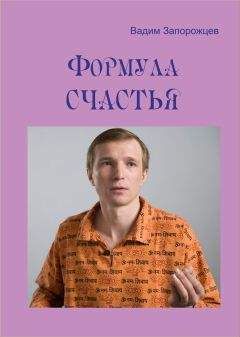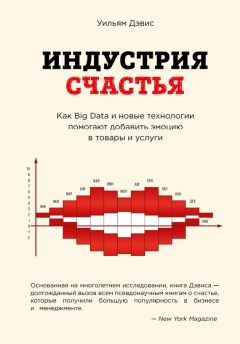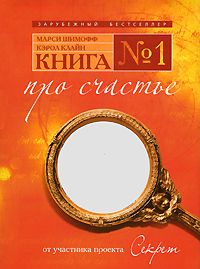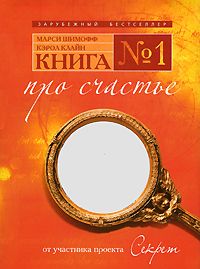Николай Ссорин-Чайков - Топография счастья
Feagin S. L. (1983). The pleasures of tragedy // American Philosophical Quarterly. № 95. P. 104.
Fisher Ph. (2002). The vehement passions. Princeton: Princeton University Press.
Foley M. (2010). The age of absurdity: why modern life makes it hard to be happy. London: Simon h Schuster.
Frey W. H. (1985). Crying: the mystery of tears. Minneapolis: Winston Press.
Frijda N. H. (1986). The emotions. New York: Cambridge University Press.
Gandhi M. K. (1909, 1997). Hind swaraj and other writings / Ed. A. J. Parel. Cambridge: Cambridge University Press.
Gilbert D. (2006). Stumbling on happiness. London: Harper Collins.
Goldie P. (2000). The emotions: a philosophical exploration. Oxford: Clarendon Press.
Graham C. (2009). Happiness around the world: the paradox of happy peasants and miserable millionaires. Oxford: Oxford University Press.
Grodal T. (1997). Moving pictures: a new theory of film genres, feelings and cognition. New York: Oxford University Press.
Haidt J. (2007). The happiness hypothesis: putting ancient wisdom and philosophy to the test of modem science. London: Heinemann.
Home is where the heart is: studies in melodrama and the woman’s film / Ch. Gledhill (ed.). London: BFI Books, 1987.
Inden R. B. (1999). Transnational class, erotic arcadia and commercial utopia in Hindi films // Image journeys: audio-visual media and cultural change in India / Ch. Brosius and M. Butcher (eds.). New Delhi: Sage Publications, 1999. P 41–66.
Keen S. (2007). Empathy and the novel. New York: Oxford University Press.
Kuhn A. (2002). An everyday magic: cinema and cultural memory. London: I. B. Tauris.
Layard R. (2005). Happiness: lessons from a new science. London: Penguin.
Levinson J. (1982). Music and negative emotions // Pacific Philosophical Quarterly. № 63. P. 327–346.
Lutz C. A. (1988). Unnatural emotions: everyday sentiments on a Micronesian atoll and their challenge to western theory. Chicago: University of Chicago Press.
Lutz T. (2001). Crying: A natural and cultural history of tears. New York: W. W. Norton.
Mayne J. (1993). Cinema and spectatorship. London: Routledge.
McMahon D. (2007). The pursuit of happiness: A history from the Greeks to the present. London: Penguin.
Moldoveanu M. C. and Nohria N. (2002). Master passions: emotion, narrative and the development of culture. Cambridge, Mass.: MIT Press.
Mukherjee M. (1985). Realism and reality: the novel and society in India Delhi: Oxford University Press.
Mulvey L. (1977/8). Notes on Sirk and melodrama // Movie. Winter. P. 53–56.
Nandy A. (1988). The intimate enemy: loss and recovery of self under colonialism. Delhi: Oxford University Press [1983].
Nandy A. (2000). Invitation to an antique death: the journey of Pramathesh Barua as the origin of the terribly effeminate, maudlin, self-destructive heroes of Indian cinema // Pleasure and the nation: the history, politics and consumption of public culture in India / R. Dwyer and Ch. Pinney (eds.). Delhi: Oxford University Press. P. 139–160.
Narayan B. (2001). Documenting dissent: contesting fables, contested memories and Dalit political discourse. Shimla: Institute of Advanced Study.
Neale S. (1986). Melodrama and tears// Screen. № 27 (6). P. 6–22.
Neil A. (1996). Empathy and (film) fiction // Post-theory: reconstructing film studies / D. Bordwell and N. Carroll (eds.). Wisconsin: University of Wisconsin Press. P. 175–194.
Ngai S. (2005). Ugly feelings. Cambridge, Mass.: Harvard University Press.
Oakley J. (1992). Morality and the emotions. London: Routledge.
Oatley K. (6 Johnson-Laird P. N. (1987). Towards a cognitive theory of emotions // Cognition a Emotion. № 1. P 29–50.
Oatley K. and Jenkins J. M. (1996). Understanding emotions. Oxford: Black-well Publishers.
Parrott W. (2001). Emotions in Social Psychology. Philadelphia: Psychology Press.
Pinney Ch. (1997). Camera indica: the social life of Indian photographs. London: Reaktion Books.
Prasad M. M. (1998). Ideology of the Hindi film: a historical construction. Delhi: Oxford University Press.
Rajadhyaksha A. (2000). Viewership and democracy in the cinema // Making meaning in Indian cinema / R. Vasudevan (ed.). Delhi: Oxford University Press. P. 267–296.
Robinson J. (2005). Deeper than reason: emotion and its role in literature, music and art. New York: Oxford University Press.
Schoch R. (2006). The secrets of happiness: three thousand years of searching for the good life. New York: Scribner.
Sinha M. (1995). Colonial masculinity: the «manly Englishman» and the «effeminate Bengali» in the late nineteenth century. Manchester: Manchester University Press.
Smith M. (1995). Engaging characters: fiction, emotion and the cinema Oxford: Clarendon Press.
Solomon R. C. (1993). The passions: emotions and the meaning of life. London: Hackett Publishing CO.
Solomon R. C. (2004a). In defense of sentimentality. New York: Oxford University Press.
Srinivas S. V. (1996). Devotion and defiance in fan activity // Journal of Arts and Ideas. № 29. P. 66–83.
Stacey J. (1993). Star gazing: Hollywood cinema and female spectatorship. London: Routledge.
Staiger J. (2000). Perverse spectators: the practices of film reception. New York: New York University Press.
Thinking about feeling: contemporary philosophers on emotions / R. C. Solomon (ed.). Oxford: Oxford University Press, 2004 (b).
Thomas R. (1995). Melodrama and the negotiation of morality in mainstream Hindi film // Consuming modernity: public culture in a South Asian world. C. Breckenridge (ed.). Minneapolis and London: University of Minnesota Press. P. 157–182.
Tidrick K. (2006). Gandhi: a political and spiritual life. London: I. B. Tauris.
Vasudevan R. (1989). The melodramatic mode and commercial Hindi cinema // Screen. № 30 (3). P. 29–50.
Vasudevan R. (1998). Sexuality and the film apparatus: continuity, noncontinuity, discontinuity in Bombay cinema // A question of silence? The sexual economies of modem India / M. E. John and J. Nair (eds). New Delhi: Kali for Women: 192–215.
Weiner B. a Graham S. (1984). An attributional approach to emotional development // Emotions, cognition, and behavior / C. E. Izard, J. Kagan & R. B. Zajonc (eds.) New York: Cambridge University Press. P. 167–191.
Well-being: the foundations of hedonic psychology / D. Kahneman, E. Diener and N. Schwarz (eds.). New York: Russell Sage Foundation Publications, 2003.
Williams L. (2009, orig 1998). Melodrama revised // Emotions: a cultural study reader / J. Harding and E. D. Pribram (eds.). London: Routledge. P. 336–350.
Wollheim R. (1999). On the emotions. London: Yale University Press.
______________________ ______________ Рэйчел Дуаер[464]Примечания
1
См., напр.: Graham С. Happiness Around the World; the Paradox of Happy Peasants and Miserable Millionaires. New York: Oxford University Press, 2009; Gilbert D. Stumbling on happiness. New York: Vintage Books, 2007; Lane R. The loss of happiness in market democracies. New Haven: Yale University Press, 2000; Nettle D. Happiness: the science behind your smile. Oxford: Oxford University Press, 2005; Diener E., Oishi S. Money and happiness: Income and subjective well — being across nations // Culture and subjective well — being / E. Diener & E. M. Suh (Eds.). Cambridge, MA MIT Press, 2000. P. 185–218; Haybron D. M. What do we want from a theory of happiness? // Metaphilosophy. 2003. № 34. P. 305–329; Gerson E. M. On quality of life // American Sociological Review. 1976. № 41. P. 793–806.
2
Среди «инаугурационных» статей первого выпуска этого журнала отметим: Fumham A., Cheng Н. Lay theories of happiness; Diener E., Lucas R. E. Explaining Differences in Societal Levels of Happiness: Relative Standards, Need Fulfillment, Culture, and Evaluation Theory; Lane R. Diminishing returns to income, companionship — and happiness // Journal of Happiness Studies. 2000. № 2. P. 227–246; 2000. № 1. P. 41–78 и 103–119.
3
Veenhoven R. Wbrld database of happiness, distributional findings in nations, Erasmus University Rotterdam (2010) // http://www.worlddatabaseofhappiness.eur.nl/hap_nat/nat_fp.php; Diener E., Diener M. Cross-cultural correlates of life satisfaction and self-esteem // Social Indicators Research Series. 2009/ № 38. P. 71–91.
4
http://www2.le.ac.uk/ebulletin/news/press-releases/2000–2009/2006/07/nparticle.2006–07–28.2448323827; White A. G. A Global Projection of Subjective Well-being: A Challenge To Positive Psychology? // Psychtalk. 2007. № 56. P. 17–20.
5
Матвеева И., Михайлова H., Михайлова Н. Качество жизни — новая цивилизационная парадигма // Стандарты и качество. 2000 № 5. С. 56–61; Нугаев P. M., Нугаев М. А. Теории качества жизни в современной западной социологии // Социологические исследования. 2003. № 6. С. 100–105; Бойцов Б. В., Крянев Ю. В., Кузнецов М. А. Системная целостность качества жизни // Стандарты и качество. 1999. № 5. С. 19–23; Лига М. Б. Качество жизни. Индикаторы качества жизни (социальные). Современная энциклопедия социальной работы / Под ред. академика РАН В. И. Жукова. 2-е изд., доп. и перераб. РГСУ, 200К. Аргайл М. Психология счастья. М.: Прогресс, 1990.
6
Petrified utopia. Happiness Soviet style / M. Balina, E. Dobrenko (eds). London: Anthem Press, 2009.
7
Гельвеций. Счастье. Поэма / Пер. и вступ. ст. М. А. Дынника. М.: Художественная литература, 1936.
8
Город с именем Счастье один // Счастьенский вариант: Альманах. Луганск: Глобус, 2007. С. 4–5; Было ли Счастье Ковалинкой? Род Ковалинских в документах Харькова и Ростова // Счастьенский вариант III: Альманах. Луганск. 2009. С. 6–9.
9
Прошлое веков стучится в сердце к нам. Где живет счастье? // Счастьенский вариант III: Альманах. Луганск. 2009. С. 5.
10
Foucault М. Of Other Spaces // Diacritics. № 16. Spring 1986. P. 22–27.
11
Только главы М. Золотухиной и М. Сапожниковой были добавлены позже. О выставке см.: Соснина О. А. Топография счастья: Русская свадьба. Конец XIX — начало XXI в. М., 2009. Бюро Прогресс-88. Выставка прошла в ГМЗ «Царицыно» с 24 июля по 27 октября 2009 г., куратор и автор концепции проекта О. А. Соснина.
12
Габдрахманов П. Ш. Имя и счастье в средневековой Фландрии // Казус. Индивидуальное и уникальное в истории. Вып. 4 / Под ред. Ю. Л. Бессмертного и М. А. Бойцова. М.: ОГИ, 2002. С. XX.
13
Свенцицкая И. С. Счастье и горе у древних греков // Казус. 2002. С. 16.
14
Frey В. S., Stutzer A. Happiness Prospers in Democracy // Journal of Happiness Studies. 2000. № 1. P. 79–102; Veenhoven R. Apparent quality — of — life in nations: How long and happy people live // Social Indicators Research. 2005. № 71. P. 61–86.
15
Кошелева О. Е. Ракурсы «щастья» в России XVII–XVIII веков // Казус. 2002. С. 108–117.
16
Марков А. В. Повесть о Горе-Злосчастии // Живая старина. 1913. С. 17–24.




